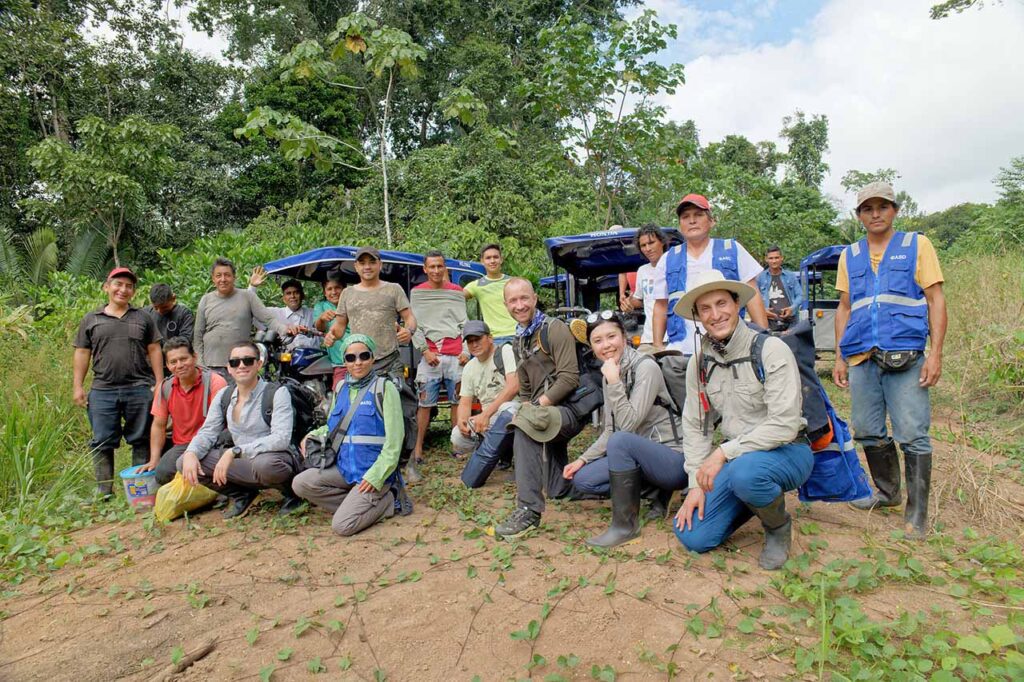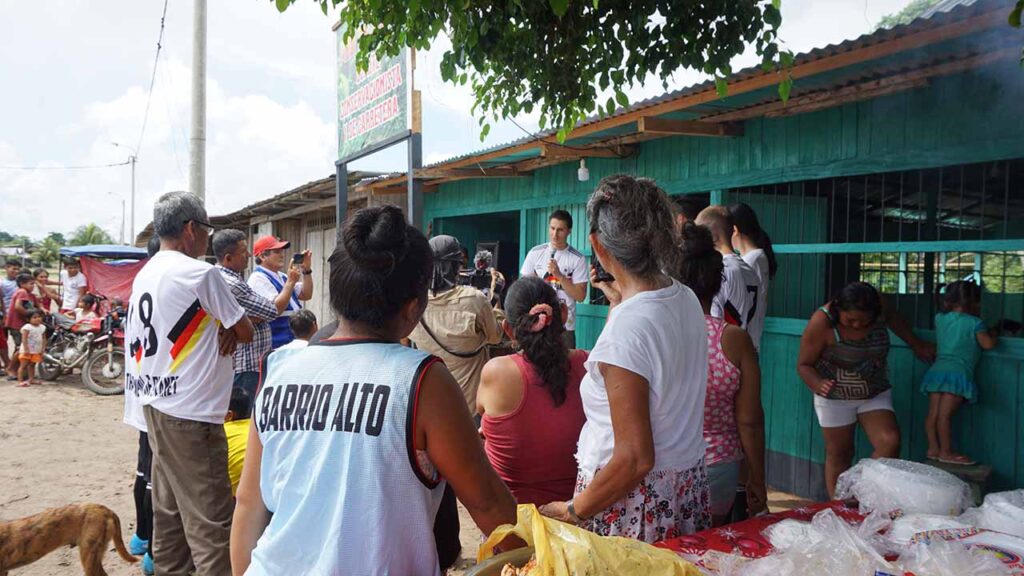Table of Contents.
Tropical rainforests are disappearing at an alarming rate due to rampant deforestation. These intricate and biodiverse ecosystems play a vital role in regulating climate, housing more than half the world’s plants and animals, and supporting indigenous communities. As rainforests vanish, we risk catastrophic climate impacts, mass extinctions, and the loss of indigenous livelihoods.
Yet, despite the devastation, conservation efforts offer hope. This article explores the array of initiatives seeking to save rainforests, from protected areas to payment schemes for ecosystem services. While challenges remain, progress has been made in parts of the Amazon and Central Africa to shield these fragile ecological treasures. The possibility of preserving rainforests for future generations rests on continued activism, government action, public pressure, and recognizing forests as indispensable allies against climate change. The battle to save Earth’s rainforests is one we cannot afford to lose.
The Threats.
- Deforestation: The Relentless Devourer.
Deforestation poses the most immediate, destructive threat to the world’s rainforests. Vast swathes of forest are razed for timber and to make way for cattle ranching, palm oil plantations, soy crops, mining, and other commercial interests. Shockingly, a forest area equivalent to 48 football fields is destroyed every single minute. At this staggering rate, we’ve already lost over 50,000 square miles annually, an area larger than Costa Rica! Satellite data reveals landscape scars and fragmentation where seamless rainforest once stood.

The major deforestation fronts are advancing across significant portions of the Amazon and Gran Chaco in South America, the Congo Basin in Africa, and the forested islands of Southeast Asia. Road building and infrastructure projects sponsored by governments and corporations provide access for settlers, agriculture, logging, and extractive industries to penetrate deeper into intact forest areas. If current trends continue, deforestation threatens to eliminate entire rainforest ecosystems in the coming decades.
Learn about deforestation in the Amazon.
- Climate Change: A Twisting Knife in the Wound.
Climate change deals a devastating double blow to rainforests already reeling from deforestation. Rising global temperatures and altered rainfall patterns substantially reduce forest resilience after logging, burning, and land-clearing activities. Prolonged droughts, increased tree mortality, wildfires, insect attacks, giant forest die-offs, and exotic species invasions are impacting rainforests worldwide. A hotter climate multiplies threats for even marginally degraded forests.
Learn about the Amazon and its role in climate regulation
In the Amazon, multiple climate models predict warmer and drier conditions could convert up to 60% of tropical forest to dry savanna this century. This would release massive stores of carbon into the atmosphere, fueling a feedback loop of accelerated warming globally. Climate change impacts on tropical forests clearly demonstrate the existential links between human and planetary health.
- Beyond the Big Guns: Other Looming Threats.
While deforestation and climate change dominate the headlines, other threats silently gnaw at the edges of rainforests:
- Poaching: Illegal hunting decimates animal populations, disrupting food chains and ecological balance. The demand for exotic pets, traditional medicines, and trophies fuels this destructive practice.
- Invasive Species: Introduced species like vines and plants can crowd out native flora, disrupting ecosystems and altering vital habitats.
- Infrastructure Development: Roads, dams, and other infrastructure projects fragment rainforests, isolating animal populations and disrupting natural migration patterns.
- These seemingly lesser threats, when combined with the major ones, create a potent cocktail of destruction, pushing rainforests to the brink.
Forest fragmentation isolates plant and animal populations, setting the stage for local extinctions
The Guardians.
Indigenous Communities
Indigenous communities play an invaluable role as guardians of tropical rainforests across the Americas, Africa, and Asia-Pacific. Their ancestral lands harbor precious biodiversity and crucial carbon stores. Indigenous groups leverage generations of traditional ecological knowledge and practices to sustainably manage complex forest ecosystems.
Community forest patrols monitor and defend territories against illegal logging, mining, poaching, and land grabbing. Studies demonstrate that formally recognizing indigenous land rights is among the most cost-effective and successful strategies for maintaining forest cover, functioning ecosystems, and mitigating carbon emissions.
Conservation Organizations
International NGOs like the World Wildlife Fund, the Rainforest Alliance, and so on work with local organizations to advance science-backed conservation in endangered rainforests. They bring resources, advocacy, legal expertise, and global visibility to the fight to expand protected areas, implement sustainable development projects with forest communities, enforce environmental law, and promote ecosystem-friendly business practices.
It is important to highlight the fact that NGOs and organizations that receive donations to carry out conservation activities have come under intense scrutiny lately due to a lack of transparency in their operations. However, this should not negate the fact that conservation organizations play a significant role in safeguarding tropical rainforests.

Governments
Forest protection has been a leading topic in meetings such as the COPs, where nations come together to discuss environmental policies. Progressive policies that recognize local community land rights and promote sustainable economic alternatives help dampen rampant commercial extraction, which is vital to reducing deforestation. Government-led interventions like Brazil’s efforts to combat illegal logging have achieved substantial reductions in Amazon deforestation over the past fifteen years when adequately funded and supported by leadership
The possibility of saving Earth’s remaining rainforests rests on expanding and connecting guarded ancestral forest territories, protected areas, sustainable agriculture zones, and managed forest concessions—an area scientists estimate will need to grow to over 50% of tropical lands to maintain a habitable climate.
The Battleground for Tropical Rainforests.
- Protected Areas
Establishing and properly managing protected areas provides frontline defense against rainforest destruction while safeguarding biodiversity strongholds and carbon stocks. Success stories demonstrate that protected status can drive deforestation towards zero when funding and enforcement enable effective monitoring and patrols. For example, deforestation plummeted by 95% after the creation of well-demarcated reserves spanning 10% of the Brazilian Amazon. Expanding connected protected areas and indigenous territories to cover half of all tropical forests offers the best scientifically modeled path to maintaining a habitable climate.

- Sustainable Practices
Promoting sustainable alternatives can curb enterprise-driven deforestation. Eco-certification drives best practices for timber concessionaires while financing reforestation. Agroforestry training helps smallholder farmers increase yields, income, and food security while maintaining forest cover through shade-grown cocoa, coffee, and tea cultivation. Ecolodges built in partnership with local communities enable tourist revenues to sustain livelihoods based on maintaining intact rainforest ecosystems.
- Empowering Local Communities
Involving forest communities as key allies and leaders within conservation strategies magnifies success. Transferring land titles and resource rights empowers indigenous groups and villagers to sustainably manage their forest territories while leveraging traditional knowledge. Building local governance capacity, participatory mapping, patrolling supports, and payments for verified ecosystem protections further enable community-led conservation to spread.

A group of people from the local community in the Amazon rainforest of Peru interacting with the Fund the Planet team.
Victories and Challenges.
The fight to save the world’s tropical rainforests is a complex, ongoing saga. While the threats continue to loom large, inspiring victories offer glimmers of hope, showcasing the power of collective action and innovative conservation strategies. Thanks to stricter regulations, increased protected areas, and community-driven conservation efforts, Brazil’s deforestation rate in the Amazon reached a record low in 2022. A testament to concerted efforts by authorities and indigenous communities.
Degraded rainforests can be brought back to life! In Costa Rica, the Guanacaste National Park, once heavily logged, has undergone a remarkable restoration process. Through reforestation efforts and the protection of native species, the park has seen a significant increase in biodiversity and forest cover. Protected areas have been successful in conserving biodiversity and ecosystem services.
Sustainable agriculture practices, such as agroforestry and organic farming, can provide food and income for people without causing deforestation. They also promote soil conservation, biodiversity, and climate resilience. Forest certification schemes, such as the Forest Stewardship Council (FSC) and the Program for the Endorsement of Forest Certification (PEFC), ensure that wood and other forest products come from sustainably managed sources. They help to reduce illegal logging and promote responsible forest management.
- Challenges: The Ever-Present Shadow.
Despite these victories, the battle is far from over. Persistent challenges threaten the progress made and the future of rainforests. Illegal logging and deforestation often thrive in areas with lax regulations and corrupt practices. Combating these issues requires strong governance, transparent policies, and effective enforcement mechanisms.The demand for resources like timber, minerals, and land for agriculture continues to exert pressure on rainforests. Finding sustainable alternatives and promoting responsible development practices are crucial to ensuring long-term rainforest conservation.
Our ever-warming planet poses a major threat, with rising temperatures, droughts, and extreme weather events making rainforests more vulnerable to fires, pests, and diseases. Addressing climate change requires a comprehensive approach that includes mitigation (reducing greenhouse gas emissions) and adaptation (building resilience to the impacts of climate change).
Conclusion.
The battle to save tropical rainforests is a complex and ongoing struggle that requires collective action and long-term commitment from governments, NGOs, the private sector, and individuals. While there have been significant conservation efforts and progress made, there are still many challenges and limitations that need to be addressed. The protection of tropical rainforests is crucial for the survival of millions of species, the mitigation of climate change, and the well-being of human societies. We must continue to support and scale up conservation efforts and work towards a more sustainable and equitable future.
Frequently Asked Questions.
Why are tropical rainforests important?
Tropical rainforests are important because they are home to millions of plant and animal species, store vast amounts of carbon, regulate the climate, and provide essential resources for human societies.
What are the threats to tropical rainforests?
The threats to tropical rainforests include deforestation, illegal activities, climate change, and natural disasters.
What are the conservation efforts to save tropical rainforests?
The conservation efforts to save tropical rainforests include protected areas, reforestation, sustainable agriculture, forest certification, and community-based conservation.




